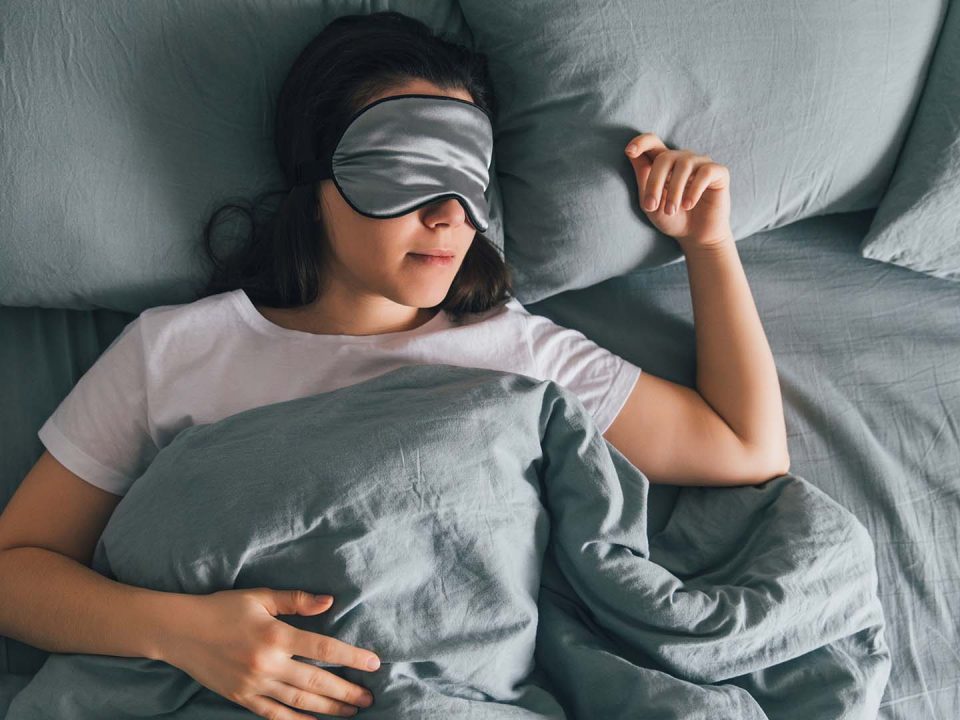Table of contents
- The Recommended Sleep Recipe for Optimal Health
- Sleep: The Unsung Hero of Mental Health
- Your Immune System's Best Friend: A Good Night's Rest
- Inflammation and Sleep: A Delicate Balance
- The Consequences of Cutting Corners on Sleep
- Optimizing Your Sleep for Maximum Healing
- The Future of Sleep Science: What's on the Horizon?
Sleep is your body's secret weapon for healing and recovery. Recent research has unveiled the incredible power of a good night's rest. Your body works overtime while you sleep, repairing tissues, boosting immune function, and consolidating memories.
A groundbreaking study published in the journal Nature Neuroscience revealed that sleep helps flush out toxins from the brain. This process, known as the glymphatic system, acts like a nightly clean-up crew for your brain. It's particularly effective at removing beta-amyloid, a protein associated with Alzheimer's disease.
But the benefits don't stop there. Sleep also plays a crucial role in physical recovery. A study in the Journal of Applied Physiology found that adequate sleep significantly improved muscle recovery after intense exercise. Athletes who got enough shut-eye showed faster muscle repair and growth compared to their sleep-deprived counterparts.
Mental health also gets a boost from quality sleep. Research published in the journal Sleep Medicine Reviews demonstrated that improving sleep quality led to significant reductions in symptoms of depression and anxiety. It's like hitting a reset button for your mind each night.
Don't underestimate the power of those nightly Z's. Your body is hard at work, even when you're not. So, prioritize your sleep – it's the foundation of good health and healing.
Data Sources: Sleep duration and risk of all-cause mortality, https://www.nature.com/articles/nn.4258
The Recommended Sleep Recipe for Optimal Health
Getting enough sleep is crucial for your health and well-being. Adults should aim for 7 to 9 hours of sleep each night. This range isn't arbitrary - it's backed by solid science. Your body needs this time to repair, recharge, and prepare for the next day.
Sleep isn't just about quantity, though. Quality matters too. Deep, uninterrupted sleep allows your body to cycle through important stages of rest. During these cycles, your brain consolidates memories and your body repairs tissues.
Skimping on sleep can have serious consequences. Chronic sleep deprivation is linked to a host of health issues. These include weight gain, weakened immunity, and increased risk of heart disease. It can also affect your mood and cognitive function.
Don't fall into the trap of thinking you can "catch up" on sleep later. While extra weekend sleep can help, it doesn't fully make up for lost sleep during the week. Consistency is key. Aim for a regular sleep schedule, even on weekends.
Remember, sleep is not a luxury - it's a necessity. Prioritize your rest and you'll reap the benefits in all areas of your life.
Data Source: American Academy of Sleep Medicine
Sleep: The Unsung Hero of Mental Health
Quality sleep is a game-changer for your mental health. It's not just about feeling refreshed; it's about giving your brain the reset it needs. When you sleep well, you're less likely to feel down, anxious, or stressed out. Think of sleep as your mental health's best friend.
Here's the deal: skimping on sleep messes with your brain's ability to handle emotions. You might find yourself snapping at little things or feeling overwhelmed more easily. It's not just in your head – there's science behind it. Studies show that poor sleep can actually change how your brain responds to stress.
But it's not all doom and gloom. Getting enough shut-eye can work wonders. It helps your brain process emotions better, so you're more likely to keep your cool when things get tough. Plus, good sleep boosts your mood and helps you think more clearly. It's like giving your brain a superpower.
Sleep also plays a huge role in decision-making. Ever notice how you make poor food choices when you're tired? That's your sleep-deprived brain craving quick energy fixes. Good sleep helps you make smarter choices, not just about food, but in all areas of life.
The bottom line? Prioritizing sleep is one of the best things you can do for your mental health. It's not a luxury – it's a necessity. So, next time you're tempted to stay up late, remember: your future self will thank you for hitting the hay.
Data Source: National Institutes of Health
Your Immune System's Best Friend: A Good Night's Rest
Sleep is your body's secret weapon against illness. Research shows that getting enough quality sleep boosts your immune system, helping you fight off infections more effectively. A study published in the journal Sleep found that people who slept less than six hours a night were four times more likely to catch a cold compared to those who slept seven hours or more.
But how does sleep actually strengthen your immune defenses? During sleep, your body produces and releases cytokines, proteins that help regulate immune responses. These cytokines are crucial for fighting infections and inflammation. Lack of sleep can decrease cytokine production, leaving you more vulnerable to pathogens.
Moreover, sleep enhances the function of T cells, a type of white blood cell that plays a key role in your immune response. A 2019 study in the Journal of Experimental Medicine revealed that sleep improves T cells' ability to attach to and destroy infected cells.
"Sleep is not a luxury, it's a necessity for optimal immune function," says Dr. Aric Prather, a sleep scientist at the University of California, San Francisco. "Even a single night of poor sleep can impact your body's ability to defend itself against pathogens."
Consistency is key when it comes to sleep and immunity. Aim for 7-9 hours of quality sleep each night to keep your immune system in top shape. Your body will thank you by staying healthier and more resilient against infections.
Data Sources: Sleep Foundation, Journal of Experimental Medicine
Inflammation and Sleep: A Delicate Balance
Sleep plays a crucial role in managing inflammation in your body. When you don't get enough rest, your inflammatory markers can spike, leading to various health issues. Research shows that even one night of poor sleep can increase inflammation levels.
During sleep, your body works hard to repair and regenerate. This process is essential for healing injuries and fighting off infections. Quality sleep helps regulate cytokines, proteins that control inflammation and immune responses.
Chronic sleep deprivation can disrupt this delicate balance. It may lead to persistent low-grade inflammation, which is linked to conditions like heart disease, diabetes, and obesity. Your body needs consistent, restful sleep to maintain proper inflammatory control.
Sleep also helps remove toxins from your brain, including those associated with Alzheimer's disease. This "brain cleaning" process is most effective during deep sleep stages. By prioritizing good sleep habits, you're supporting your body's natural healing mechanisms.
Remember, healing isn't just about physical recovery. Quality sleep is equally important for mental health and cognitive function. It helps reduce stress hormones and supports emotional resilience, both crucial for overall well-being.
Data Source: Journal of Clinical Sleep Medicine
The Consequences of Cutting Corners on Sleep
Skimping on sleep can wreak havoc on your health. Chronic sleep deprivation is linked to a host of serious health issues. Getting less than seven hours of sleep per night increases your risk of obesity, type 2 diabetes, and heart disease. Your body's ability to regulate blood sugar takes a hit, potentially leading to weight gain and insulin resistance.
But that's not all. Poor sleep can weaken your immune system, making you more susceptible to infections. It also impacts your mental health, increasing the likelihood of depression and anxiety. Even your decision-making skills suffer when you're sleep-deprived.
Don't fall into the trap of thinking you can "catch up" on sleep during weekends. This strategy doesn't effectively counteract the negative effects of chronic sleep loss. Your body needs consistent, quality sleep every night to function optimally.
Remember, sleep is not a luxury – it's a necessity for your overall health and well-being. Prioritize your sleep to give your body the best chance at healing and thriving.
Optimizing Your Sleep for Maximum Healing
Ready to supercharge your sleep for better healing? Let's dive in! First, stick to a consistent sleep schedule. Go to bed and wake up at the same time every day, even on weekends. This helps regulate your body's internal clock.
Create a relaxing bedtime routine. Try reading, gentle stretching, or meditation before sleep. Avoid screens at least an hour before bed – the blue light can disrupt your sleep cycle.
Make your bedroom a sleep sanctuary. Keep it cool, dark, and quiet. Invest in a comfortable mattress and pillows. Use blackout curtains or an eye mask if needed.
Watch what you eat and drink. Avoid caffeine late in the day and skip heavy meals close to bedtime. A light snack is okay, but nothing too heavy.
Exercise regularly, but not too close to bedtime. Physical activity can improve sleep quality, but intense workouts near bedtime might keep you awake.
Manage stress through relaxation techniques. Try deep breathing exercises or progressive muscle relaxation to calm your mind before sleep.
If you can't sleep, don't force it. Get up and do a calming activity until you feel sleepy. Avoid checking the clock – it can increase anxiety about sleep.
Remember, good sleep hygiene is key to healing and overall health. Sweet dreams!
Data Source: National Sleep Foundation
The Future of Sleep Science: What's on the Horizon?
Sleep science is evolving rapidly, promising exciting breakthroughs in our understanding of rest and recovery. Researchers are exploring new frontiers in sleep technology and personalized recommendations. Wearable devices are becoming more sophisticated, offering detailed insights into our sleep patterns. These gadgets may soon provide real-time advice for optimizing sleep quality.
Scientists are also investigating the potential of sleep manipulation to enhance healing. Targeted sound stimulation during specific sleep stages could boost memory consolidation and cognitive function. This technique might prove beneficial for patients recovering from brain injuries or battling neurodegenerative diseases.
Genetic research is uncovering individual differences in sleep needs and patterns. This could lead to personalized sleep prescriptions based on your unique genetic makeup. Imagine a future where your doctor can recommend precise sleep durations and schedules tailored to your DNA.
The intersection of artificial intelligence and sleep science holds immense potential. AI algorithms could analyze vast amounts of sleep data to identify patterns and predict health outcomes. This technology might one day alert you to potential health issues before symptoms appear, all based on subtle changes in your sleep patterns.
As our understanding of sleep deepens, we may discover new ways to harness its healing power. The future of sleep science looks bright, promising more restful nights and healthier days ahead.






